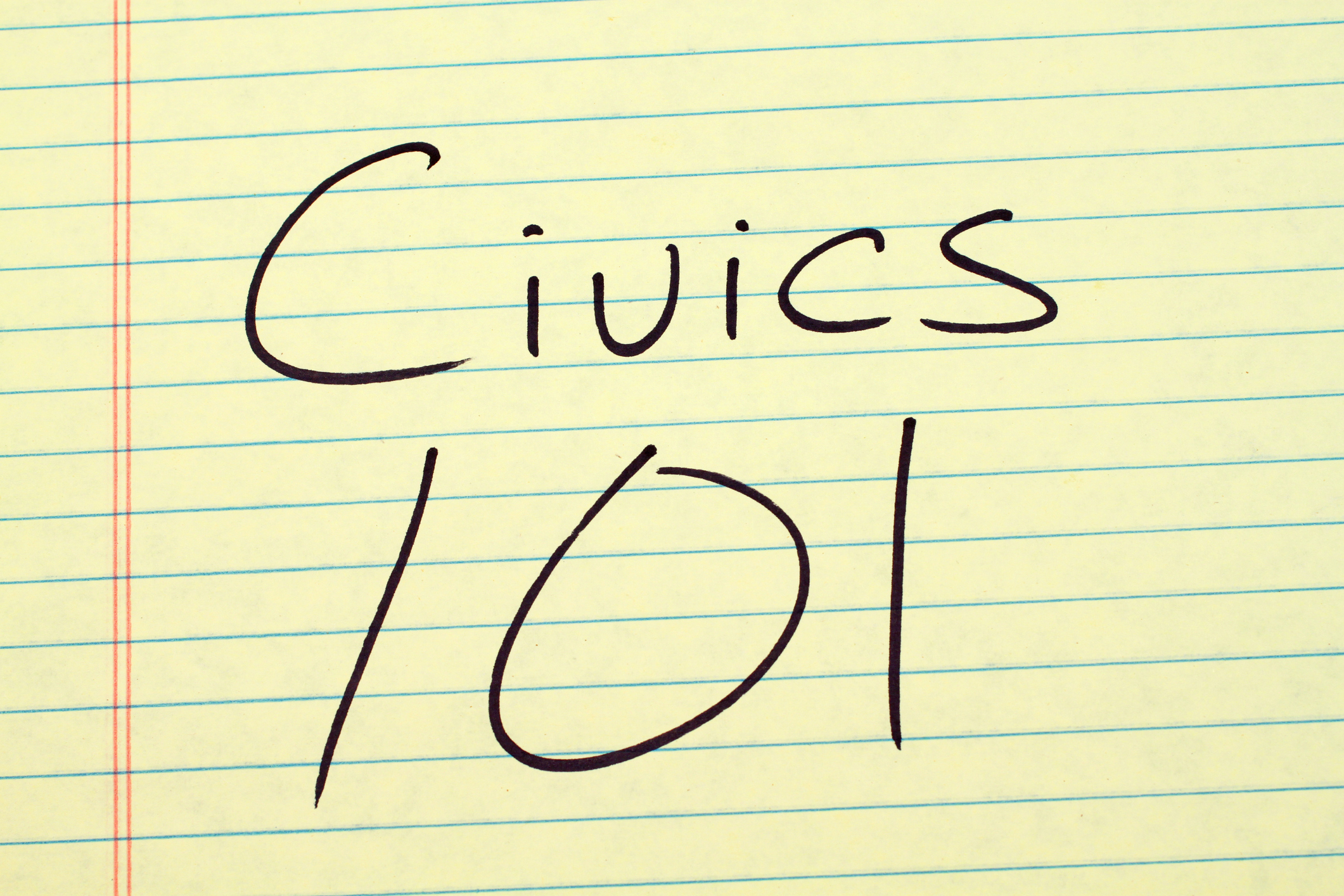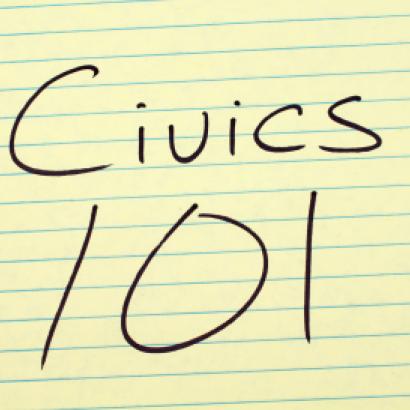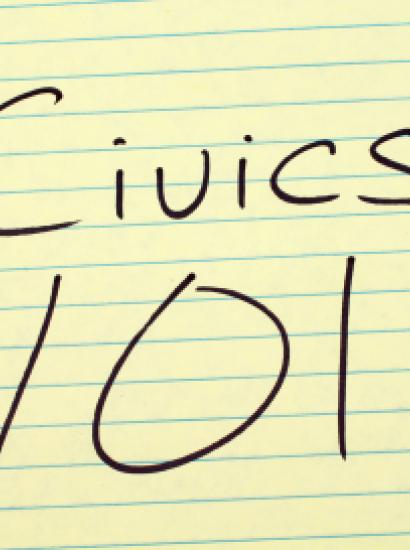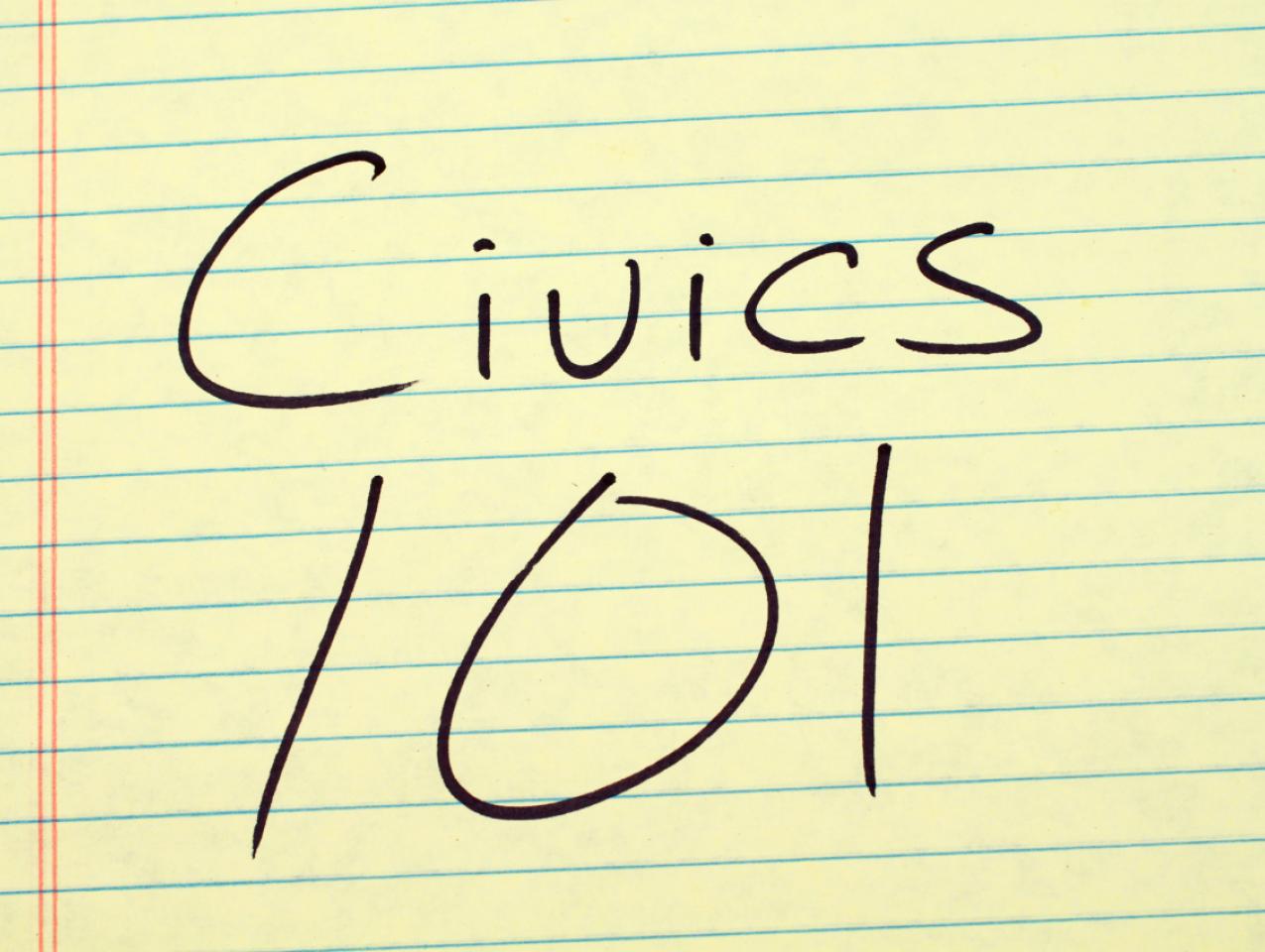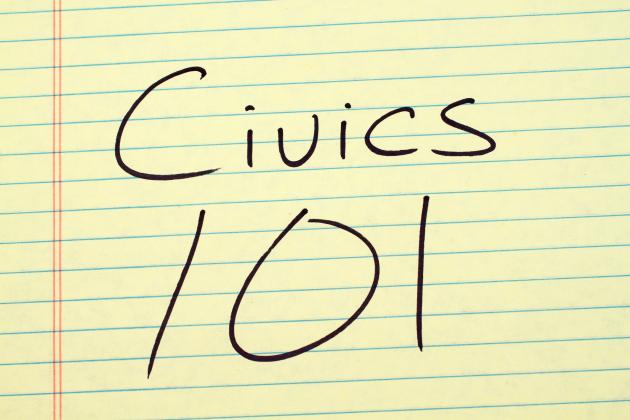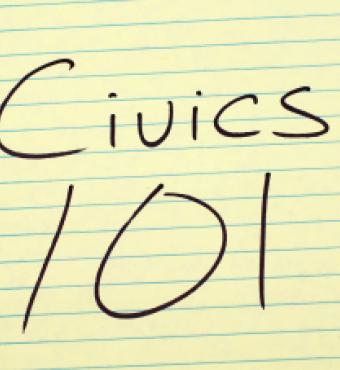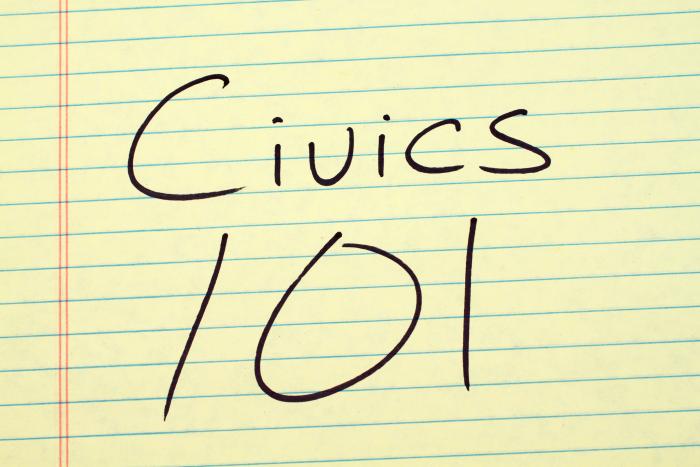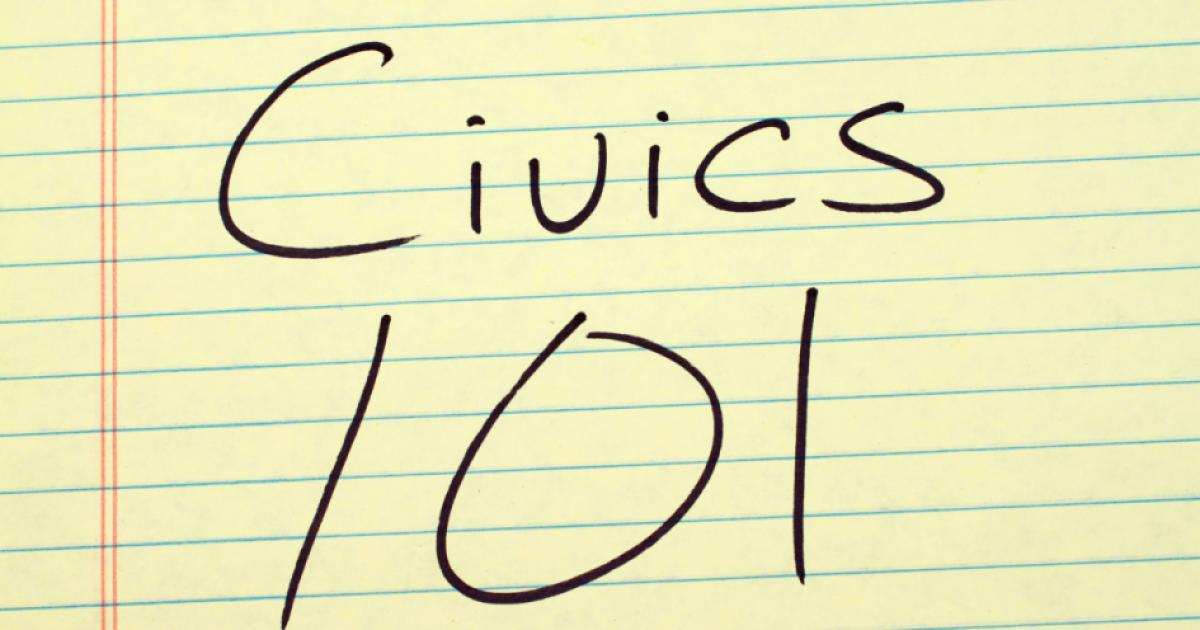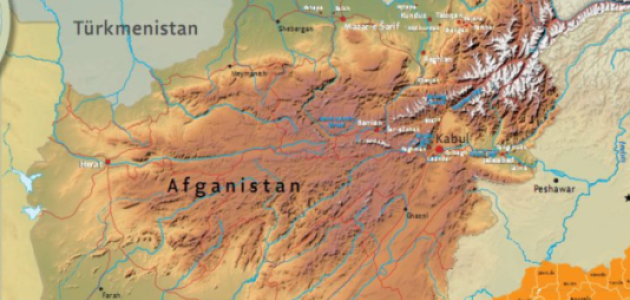by Jonathan Movroydis
In the following Hoover Q&A, former Senator Orrin Hatch (R-UT) and Hoover Institution Research Fellow David Davenport discuss “Commonsense Solutions to Our Civics Crisis,” a newly released Hatch Center special report authored by Davenport.
Hatch and Davenport argue that American educators and policy makers have incorrectly responded to foreign competition by overemphasizing STEM (science, technology, engineering, and mathematics) at the expense of civic education. They also underscore the importance of civics in nurturing the formation of American citizenship, closing the deficit of trust between government and the people, and strengthening the resilience of democratic institutions.
Why did the Hatch Center commission this report about America’s civic education crisis?
Hatch: The Hatch Center—the policy arm of the Orrin G. Hatch Foundation —is a national think tank focused on promoting civility and solutions. Part and parcel of that effort is reinvigorating civics teaching. From our research, we knew that the seeds of division and dysfunction now undermining American society were sown—at least in part—by decades of neglect in the area of civic education. To reinvigorate our democracy, we need to re-center civics at the heart of our education system. That’s why in the spring of this year, we reached out to Hoover’s David Davenport to join us in writing this special report on our nation’s civics crisis.
Why do you believe that the current state of American democracy is anemic?
Hatch: Anemic describes a state of fatigue brought on by lack of oxygen in the bloodstream. And American democracy—just like the human body—requires a steady supply of oxygen in the bloodstream to function properly. But right now, the body politic is oxygen starved.
Civic learning breathes life into our democracy, and currently we’re not getting enough of it. We’re carrying out all the rituals of a modern democracy—elections, inaugurations, televised debates, and the like. But our bloodstream isn’t carrying the oxygen we need to survive. We are encouraging people to organize, vote, and even run for office, but many of those same people lack the civic knowledge they need to sustain our democracy over the long term. The results are weak and dysfunctional institutions, chronic gridlock, and growing fatigue over the state of our politics. That’s why I describe the state of our democracy as anemic.
Did the Founding Fathers have a vision for how Americans would learn about their country?
Davenport: Yes, the founders had in mind that the primary purpose of school was to educate Americans about citizenship. There are quotations from the founders, which I include in my paper, explaining that the preservation of a free republic depended on a virtuous and educated citizenry, and the place that that was going to happen was in the schoolhouse. We have given up on that idea today and have been reduced into thinking that school exists just to teach us math, reading, and science in particular.
What are the roots of the current crisis in civic education?
Davenport: I think the crisis arose from otherwise good intentions. Our education policy strategy has been directed toward maintaining international competitiveness and has caused us to change the balance of our curriculum. When Sputnik was launched in the 1950s, we were horrified that we had a science and technology deficit relative to Russia. In the early 1980s, there was a major report issued by the US National Commission on Excellence in Education called “A Nation at Risk” that described how we were far behind other countries in math and also to some degree in reading. That report moved us down the road to more standardized testing and spending substantial school time preparing for and administering those tests. Now we've decided to spend billions of dollars to focus teaching on STEM, based on the belief that it is the only way the United States can be globally competitive in the future.
Every decade or two we seem to discover some global threat that alarms us, and so we change curriculum dramatically in order to overcome that perceived challenge.
As a result of the weight we give to STEM, courses in American history and US government have paid the price. By now, we have almost no civics in elementary or middle school. In most states, high school students spend on average one semester in class learning civics.
Hatch: It’s hard to pinpoint an exact moment in time when American civic education took a turn for the worse. It’s easy, however, to identify certain trends that have led to the decline of civics instruction over the years. One trend is the “Zinnification” of American history teaching starting in the 1980s. This refers to the politicization of civics through partisan texts such as Howard Zinn’s A People’s History of the United States. These “textbooks” recast the American story as one long history of injustice and oppression. The New York Times 1619 Project is just one more addition to the literature.
While it’s important to give students a holistic understanding of our nation’s history, it’s counterproductive to instill in them a distaste for the American founding and a cynical view of our history. Rather, civic education should help students understand just how exceptional (and fragile) the American experiment is. And it should weigh our country’s flaws against her many strengths.
Was there some golden age of civic education that we should aspire to again? In the early days of American public education, our schools were rightly centered on forming democratic citizens. We need to get back to that. We need to restore civics as the primary purpose of a liberal education. But the curriculum needs to be updated for the modern era. That means no biased or boring textbooks but hands-on instruction through primary documents by teachers who are well trained in history and civics.
Another trend—and one with unintended consequences—is the rise of STEM. Now first, let me be clear: STEM education is vital to American innovation and economic competitiveness. That’s why I was a strong advocate for STEM throughout my Senate tenure. I worry, however, that in pushing STEM, our country has lost sight of civics. This would explain why federal funding for STEM soars to new heights while funding for civics has bottomed out.
Consider that the federal government spends annually $54 per student to further STEM learning and a mere $0.05 per student for civics. To correct this disparity, we don’t call for a decrease in spending on STEM—because again, STEM is essential. But we do call for a 100-fold increase in federal funding for civic education, which is arguably just as important to our nation’s future.
What proper balance needs to be sought in allocating student time to both American civics and STEM?
Davenport: I'm not enough of a K–12 education expert to be the one designing the curriculum. I think the problem has been that civics has really had no major defenders when it has come to curricular decisions and time allocation. I think the gold standard would be for some emphasis on civic education in elementary school and an entire year in high school, capped by a standardized test. It's never easy to squeeze in courses or additional time on any subject, but I'm not calling for a major rewriting of school curriculum.
In your article you cite E.D. Hirsch’s book Knowledge Matters. Hirsch argues that “schools have mistakenly moved toward teaching reading by means of skills such as identifying the main idea or making inferences.” Why is this a mistake?
Davenport: I reference Knowledge Matters in my paper, along with The Knowledge Gap, by Natalie Wexler. In their view, the crisis in education is not limited to civics. Again, the high-stakes testing culture in our schools puts a premium on students’ ability to be able to pick out topic sentences and make inferences. Learning has become less about the content of history and literature.
I think it was Hirsch who said, you can make inferences just as well from reading “Tyler Makes Pancakes” as from a biography about Abraham Lincoln.
We have dumbed down the knowledge part of the curriculum in order to cater to students’ interests, and then we've made the objective to learn about broad skills like reading. You could learn those same skills reading a biography of Abraham Lincoln, and, frankly, that’s what we used to do when I was in school. The development of reading and critical thinking skills was an incidental part of reading that sort of literature. We also need to teach civic knowledge so that people become responsible citizens.
What are the consequences of the decline in civic education?
Davenport: The year 2020 has created a real stress test for American democracy, and we’re realizing that if we’re going to have a strong, resilient democracy, people need to better understand how our system of government works. They have to understand the roles of the Supreme Court, Congress, and the presidency. They have to understand that in a democracy there needs to be a fundamental right to free speech and an ability to argue issues openly without jumping to conclusions or canceling them from the conversation.
I think in all sorts of ways our democracy is hitting a point where the lack of civic education is beginning to be a serious problem. The good news is that we are actually in the midst of an awakening. I have seen recently in both liberal and conservative circles a call for increased teaching about the US Constitution and preparing people to be better citizens. That is maybe one silver lining out of the dark cloud of 2020.
You write that the decline in civic education has contributed to a deficit in America's trust towards government and that this “mistrust seems highest when young people fail to understand government systems and come to view them as just politics.” Conversely, could it be said that education leads to less apathy and fosters more skepticism from the general public about the behavior and decisions of our leaders and processes?
Davenport: The theory that I came across in my research was, if a person understood how government is supposed to work and could see how far we are from that ideal, it may actually reduce his or her trust in government. However, the predominant view is, as I quote one expert in my paper, “How can you trust what you don't understand?”
Students are quick to write things off these days as, “Well, that's just politics.” Politics is actually the framework in which a lot of the arguments about American values and the direction of the country takes place. It is also where decisions about government are made. We must strengthen that arena and learn how to responsibly and coherently apply our fundamental rights to free speech. We also have to call on leaders in our three branches of government to fulfill their duties under the US Constitution, not to govern as they wish.
How should civic education be shaped to strengthen democracy?
Hatch: The primary purpose of civic education is to form responsible democratic citizens capable of stewarding the American experiment and handing it off to the next generation. But today’s youth won’t appreciate our democracy—or even see that it’s worth preserving—if they don’t respect our history.
That’s why the proper teaching of history is essential to civic education. I touched on this subject earlier, but it’s worth re-emphasizing: we need to reject reductionist versions of history that focus myopically on America’s sins instead of her virtues. It’s important for students to see both. But it’s just as important for students to grasp how exceptional our experiment in self-government is. Set against the backdrop of human history, this country is a miraculous anomaly. By appreciating America’s strengths and its remarkable history, students will better understand how to take care of our democracy, and ultimately, how to pass it on better than they found it.
You argue that the growing interest in socialism, especially among young people, is a current and classic case of civic ignorance. What evidence points to this argument?
Davenport: The day this really hit me was when I read a survey by Reason magazine a few years ago. It showed an astonishing number of young people who were expressing interest in and openness to socialism. However, when I read through the full set of questions, their views about socialism varied. One question asked, “Would you rather companies’ behavior be regulated by the government or by the market?” Overwhelmingly, these young people did not want the government to be running companies that offer products and services they use and enjoy. Therein lies the contradiction: “We want a free market to be governing the business environment but we also want socialism.”
This caused me to think, when these young people say they want socialism, do they even have a proper understanding of what socialism means? I know the definition has broadened some, but what you discover is that what young people are more interested in is free stuff from the government. They want the government to provide a free education, forgiveness of student loans, and help in finding jobs. I note in the paper that in 2016 the prime minister of Denmark responded to claims by young people in America that his country was socialist. He said, “Wait, we’re not a socialist country. We’re a market economy but with a high welfare component.” You can’t blame these young people entirely, because this obvious error is indicative of the failure of our educational system.
What role do you think government should play in strengthening civic education?
Davenport: Education is still primarily a state and local matter. That’s eroded some in recent years, especially with the passage of the No Child Left Behind Act in 2002, although we’ve not renewed that law and have moved back toward a greater emphasis on state and local government oversight of education. To me the real action needs to be at the state, local, and even school levels. That doesn’t mean the federal government doesn’t have a role to play. Ten years ago, the federal government was appropriating $150 million into civic education. Now it’s closer to $5 million. I call for an increase in that spending and especially for grants to states and for teacher training.
The federal government also is in charge of testing. The federal testing regime currently tests in reading, math, and science. However, it only tests civics in the eighth grade. This is a statement at the federal level about what’s important and what’s not important. Regular testing needs to be extended in civic education. We need leaders in Washington to say to the country on a bipartisan basis: “Look, this civic education business is really important, and we want to increase its testing and funding.”
Hatch: The Hatch Center’s report offers Congress a policy blueprint for fixing civic education. It starts with increasing federal funding for civics by 100-fold. This includes a commitment of more than $500 million to improve teacher development in civic education, coupled with grants of $1 million a year or more from the National Endowment for the Humanities.
Congress can also improve the quality of civic education by mandating testing in US history and government for grades 4, 8, and 12, and requiring states to report these results nationally. But at a certain level, Congress can only do so much; it’s up to the states to be wise stewards of federal resources and to use them to improve teaching and testing across all grade levels.
You write that there needs to be a “layer cake” approach to curriculum changes in civic education. What do you mean by that?
Davenport: I think that one of the things that I experienced in my education was building knowledge and skill competencies in different fields while graduating in successive grades.
Students will learn about some components of American history in the first grade, but that will prepare them to learn more by the fifth grade. In the paper, I refer to it as building a layer cake, where every year educators provide students with some additional knowledge that is age appropriate, so that by the time students get to the one civics course presently required in high school, there is a solid foundation from which they can build. If students do not learn anything about civics until high school, they will be set up for failure. They won’t be able to understand political language, civics issues, and the role and structure of government.
Can you talk about how teachers can be better trained on subject matter?
Davenport: Training for civics teachers should be the same as for people in any profession. Training should take place at the university level when they pursue bachelor’s and master’s degrees. Secondly there’s on-the-job training, what is often referred to as teacher development.
Teachers are frequently just a few pages ahead of the students in the textbook and trying to keep up. In such circumstances, it is difficult to engage or inspire enthusiasm in students.
I think we need stronger state requirements in terms of teacher certification in civics. Second, I believe the more immediate need, and one that’s more easily fulfilled, is training teachers once they are in the classroom. My favorite method of training is working with teachers on how to engage students in primary documents. I think that’s one of the really powerful tools for teaching history and civics. Again, that should be done in teacher development once they’re already in the classroom.
Why do you feel the use of primary documents is important in supplementing civic education?
Davenport: One of our problems as a society but certainly also in civic education is that we are studying history wearing 21st-century glasses. In other words, rather than reading about the debates over the Constitution, slavery, or other big issues in American history, we instead look at them through modern lenses. We criticize decisions of our past leaders and we judge them based on our standards and understandings of today. That’s not really studying history. That’s basically just politicizing and taking a very shallow view of history. Studying primary documents allows students to leave their 21st-century glasses behind, fly back into history, and immerse themselves in the debates, writings, and speeches of the day.
I believe this method of teaching creates a lot more enthusiasm in students. For example, once they understand the Great Depression and the issues that Herbert Hoover and Franklin Delano Roosevelt were debating, they’ll have a much better understanding of economic issues today.
You discuss action civics, the notion of getting students out of the classroom to work on community service projects as a means of applied learning. You argue that this teaching method doesn’t adequately prepare students with a historical framework for understanding present-day issues. How should civics curriculums be designed to help students apply knowledge to real life circumstances?
Davenport: I am not opposed to the concept of action civics. I’m only opposed if it becomes either a substitute for civic knowledge or if educators try to put it ahead of developing civic knowledge. I actually think that getting out, visiting your state capitol, and understanding how bills work is a valuable part of civics education. A lot of people are debating this topic as if it is an either-or problem. We need both civic knowledge and civic engagement for young people, but students need the knowledge first so that the engagement is meaningful.







